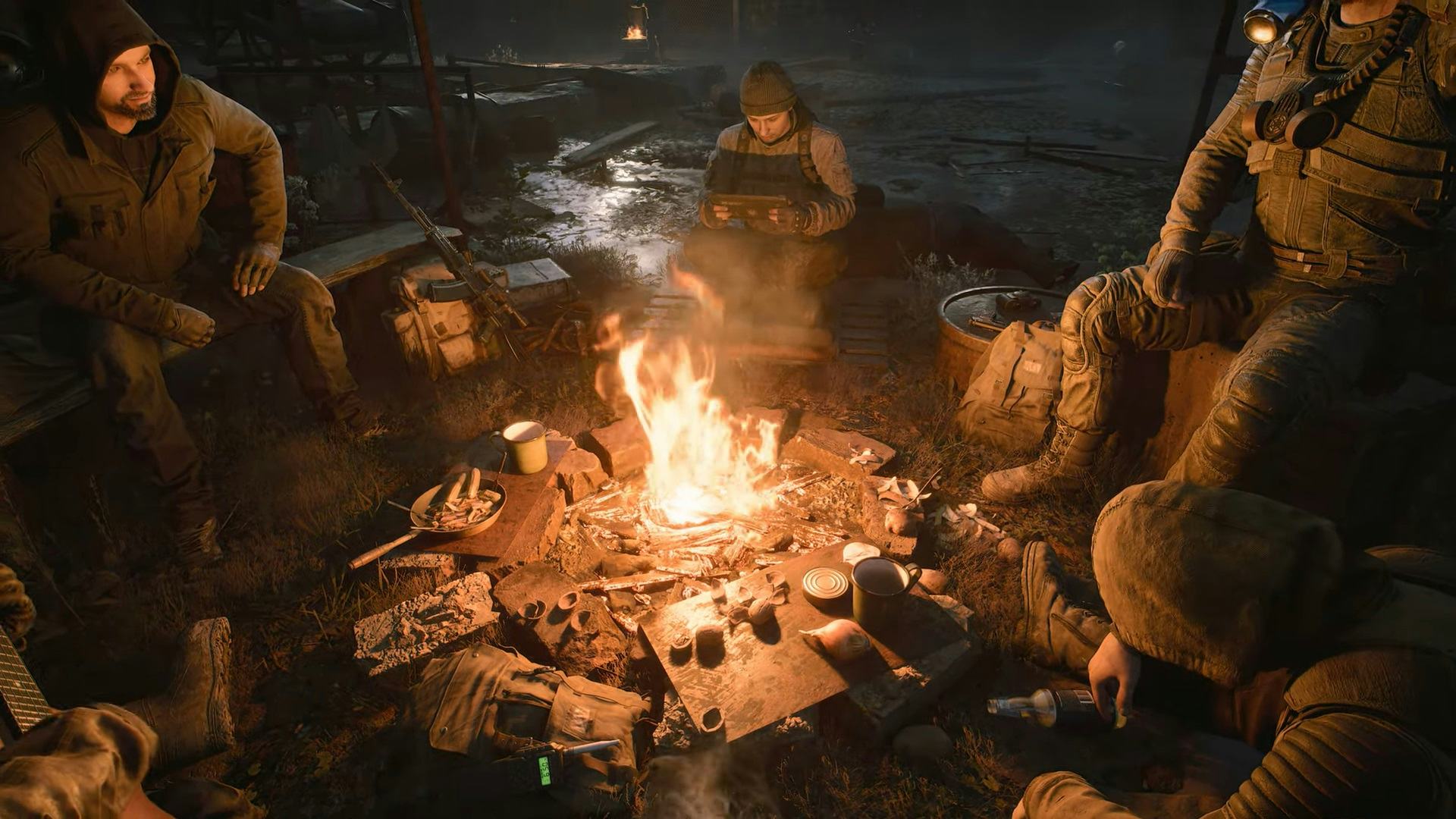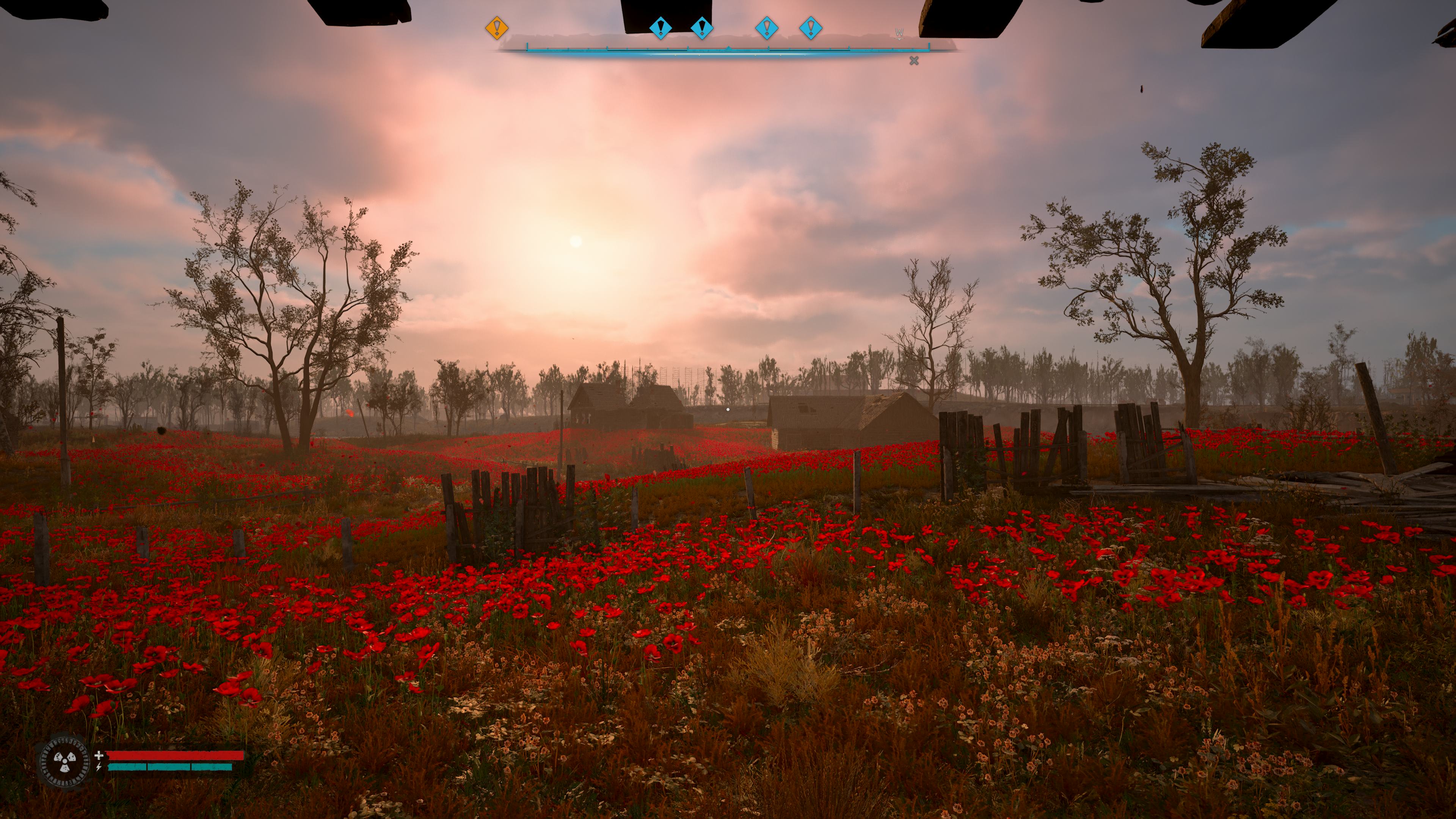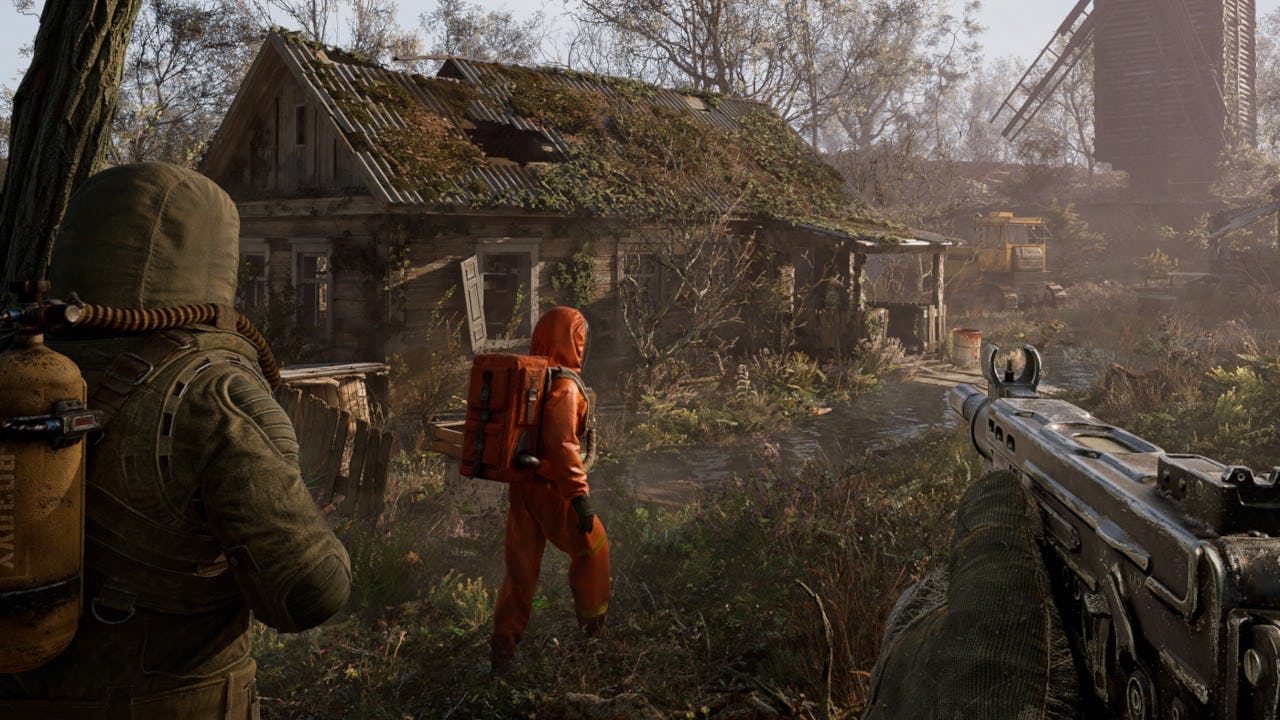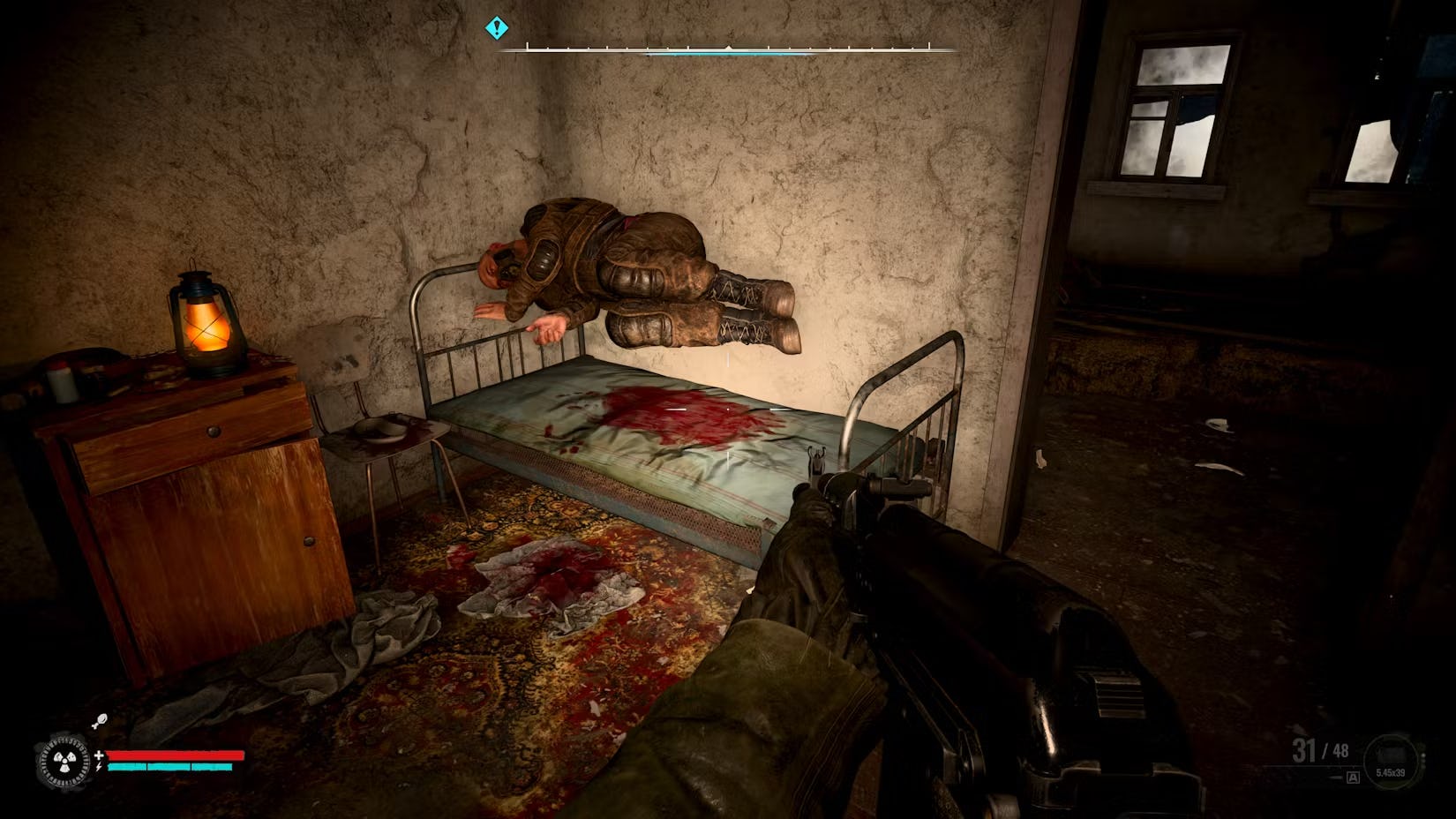
S.T.A.L.K.E.R. 2: Heart of Chornobyl launched with a ton of bugs. While it mostly doesn’t take away from the immaculate vibes of survival and danger in the world’s most lethal stretch of land, it does add a dimension of friction that can break immersion. However, the bugs are only a fraction as disappointing as the game’s enemy AI. While they’re functional as threats to sneak around and get into firefights with, it’s a far cry from what we were promised in the years leading up to release.
Development leads at GSC Game World say that their lofty promises about how S.T.A.L.K.E.R. 2’s would significantly upgrade NPC behavior compared to its predecessor were scrapped to get the game running in an acceptable state.
In an interview with IGN, GSC Game World CEO Ievgen Grygorovych, and creative director Maria Grygorovych spoke candidly about why the game’s promise of realistic artificial intelligence, dubbed “A-Life 2.0,” was significantly more limited than intended in the final version of the game.

“We were fighting with optimization,” Ievgen said. “To optimize, you have a lot of things that need your resources, and you try to cut things from different directions to properly optimize the game well.”
In the tumultuous lead-up to the game’s release, the team promised an upgraded version of the first game’s revolutionary NPC AI. This 2.0 version would allow non-playable characters to act independently even when the player is kilometers away. The upgrade was meant to make the game more immersive, as emergent scenarios would occur more naturally, making the game world feel more alive.
Unfortunately, the final game didn’t implement most of these features as broadly as the team hoped. Enemies behave at times foolishly and omnipotently, spawning when needed and sometimes even being alerted to the player’s location when it doesn’t feel fair. Conflicts and scenarios in the open world work, but feel as scripted as any other game. Meanwhile, friendly characters run through daily routines similarly to games like Skyrim. It all works, mind you, but it isn’t as big a step forward as the developer had hoped.

Ievgen explained that to get A-Life 2.0 running as originally intended, NPCs would need a larger spawn area, but that would require more memory. More of that in turn would require cutting resources from the game’s many other complex simulations, and that would unfortunately, break other parts of the game.
“We created some bugs not long ago before release with NPCs spawning in the air and dropping back to the bottom. They should actually spawn in the terrain. Why it happened, I don’t know! And also we had some bugs with AI behavior,” he said. “All these things connected make it look like it's very broken and not working.”
Instead, GSC Game World opted to shrink the area around the player where A-Life 2.0 works significantly and cut back on its more complicated functions. Luckily for players who want to see those features come to fruition, GSC Game World is actively working on getting it functioning properly in the game.

“We are now continuing working on the optimization part to bring more resources for the A-Life system, to increase the range where A-Life is actually visualized,” Ievgen said. “We committed to players to make it work and it can be done from directions both optimizing, giving more resources to A-Life, fixing bugs, making it work properly, and then putting more efforts to make it more advanced.”
S.T.A.L.K.E.R. 2: Heart of Chornobyl has had fairly active post-launch support. The developer has been hard at work fixing bugs, graphical flaws, and progression issues. They’ve also implemented missing features such as customizable analog stick dead zones. In the two weeks since its release, GSC Game World has released two updates that have squashed over 650 issues according to the developer.







